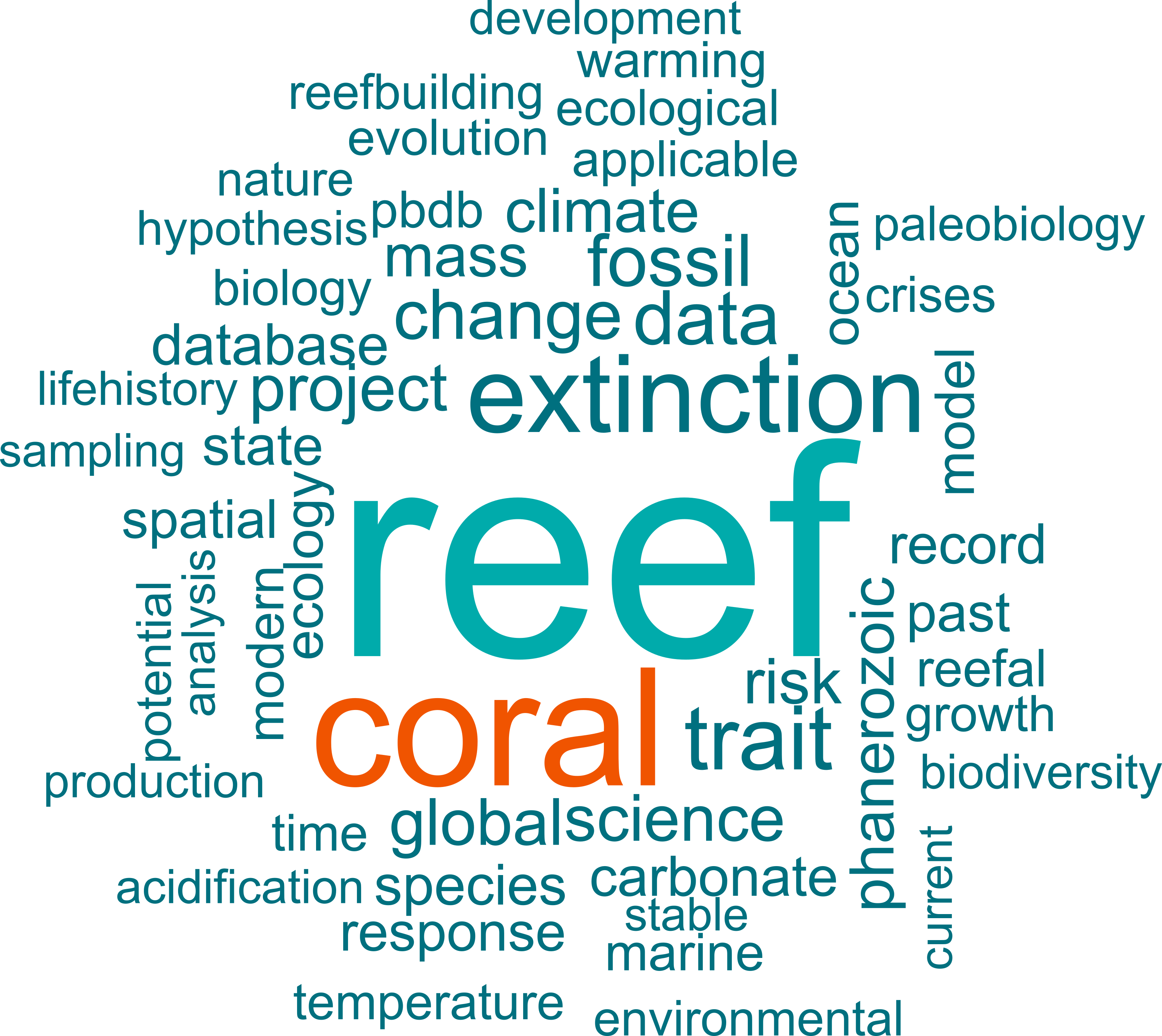CoralTrace: A new approach to understanding climate-induced reef crises
PI: W. Kiessling
Coral reefs are perhaps the most threatened marine ecosystems from current climate-related stressors (CRS). The modern reef crisis manifests itself in an increased frequency of massbleaching, reduced calcification rates of corals, and elevated coral mortalities. Although extinction risk is also high among reef-building corals, reef decline is driven by reduced net calcium carbonate production of existing species, rather than extirpation or extinction. Nevertheless, extinctions are a major concern, because these are irreversible and thus preventing the recovery of reefs from CRS-driven crises. Using the Paleobiology Database and the Erlangen PaleoReefs Database together with a new fossil trait database on extinct reef builders, this project aims to reveal the interplay of individualistic evolutionary fate and whole ecosystem changes in reefs over time. Specifically, we test three main hypotheses: (1) Reefs are more sensitive to CRS than reef building species. A global reef crisis can occur without mass extinction, simply because the net calcium carbonate production is reduced. An important implication of this hypothesis is that reef crisis may be an early warning sign of a forthcoming biodiversity crisis. (2) Both the reef-building capacity and the extinction risk of reef building taxa can be predicted from their traits. Although not all potentially relevant life-history traits can be derived from fossils (e.g., nature of photosymbionts), preservable traits such as growth morphology and habitat breadth have been shown to be correlated with coral extinction risk and reef growth today. (3) Mesophotic and mid-latitude environments are suitable environments for reefal refugia and recovery after climate induced crises. Hypothesis testing will be performed in a multivariate statistical framework and machine learning focusing on preserved reefal volume and extinction as dependent variables. Independent variables such as magnitude and duration of warming, anoxia and acidification will be taken from published sources and accompanying TERSANE projects. Tests will be conducted at the level of specific time slices (end-Permian, end-Triassic, early Jurassic) as well as in a time-series context. To be feasible and relevant to TERSANE’s goals, CoralTrace will focus on Permian to Neogene reef systems.



Our Social Media
News